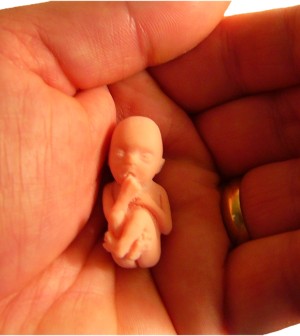- 8 Ways to Increase Dopamine Naturally
- 7 Best Breads for Maintaining Stable Blood Sugar
- Gelatin vs. Collagen: Which is Best for Skin, Nails, and Joints?
- The Long-Term Effects of Daily Turmeric Supplements on Liver Health
- Could Your Grocery Store Meat Be Causing Recurring UTIs?
- Are You Making This Expensive Thermostat Error This Winter?
- Recognizing the Signs of Hypothyroidism
- 10 Strategies to Overcome Insomnia
- Could Artificial Sweeteners Be Aging the Brain Faster?
- Techniques for Soothing Your Nervous System
Multiple Egg Donations May Not Affect Women’s Future Fertility: Study


WEDNESDAY, Oct. 16Undergoing multiple egg donations does not have a negative effect on women’s future fertility, according to a preliminary new study.
This was the case even when subsequent egg-donation cycles required significantly more gonadotropin — a drug used to stimulate ovulation — according to researchers from Weill Cornell Medical College, in New York City.
The study involved women who completed at least five egg-donation cycles between January 2004 and April 2012. On average, the women were 26.4 years old at the time of their first egg donation. By the time of their fifth cycle, the average age of the women was 28.7 years.
In conducting the study, the researchers examined the women’s anti-Mullerian hormone levels (used to measure women’s response to fertility treatments), the amount of hormonal medication they received and how long they took it. They also examined how many eggs were retrieved during each egg-donation cycle.
The study revealed that, over multiple cycles, the average length of time required for stimulation ranged from 9.4 days to 10 days and the average number of eggs retrieved ranged from about 21 to 24.
“This retrospective study is reassuring in that egg donors who undergo up to six cycles do not have evidence of depleting their ovarian reserve, which bodes well for their future fertility,” Dr. Linda Giudice, president of the American Society for Reproductive Medicine, said in a society news release.
On the receiving end, a separate study revealed that people who need donated eggs to conceive a child may benefit from using frozen eggs. Researchers at Seattle Reproductive Medicine found that using frozen eggs may be about as efficient as fresh eggs, as well as more cost effective.
For this study, the researchers compared the outcomes of 113 fresh donor egg in vitro fertilization (IVF) cycles with 77 frozen cycles that took place between March 2012 and February 2013.
Although pregnancy rates were 60 percent for fresh cycles and 57 percent for frozen cycles, the study revealed that patients using frozen eggs waited a shorter time from the initial medical consult to the start of a cycle: 217 days for fresh eggs, compared with 172 days for frozen eggs.
Frozen eggs also had much lower patient cancellation rates at 1.2 percent, compared with 12 percent for patients who’d planned to undergo fresh cycles.
Recipients who used frozen eggs also had lower costs: $17,500 per transfer for frozen eggs and an average of more than $30,500 for each pregnancy. For those using fresh eggs, however, the cost per transfer was nearly $30,000 with an average cost per pregnancy of more than $49,500.
During the last six months of the study, 61 percent of all donor egg cycles involved frozen eggs, according to the news release.
“Frozen egg banking is a promising development for patients and donors alike,” Giudice said. “Because the costs are lower and a shorter waiting time is involved, more patients are likely to find frozen donor eggs a very appealing alternative to fresh donor eggs.”
The studies’ findings were expected to be presented Wednesday at the joint meeting of the International Federation of Fertility Societies and the American Society for Reproductive Medicine, held in Boston. Data and conclusions should be viewed as preliminary until published in a peer-reviewed journal.
More information
Visit the U.S. Centers for Disease Control and Prevention to learn more about assisted reproductive technology.
Source: HealthDay
Copyright © 2026 HealthDay. All rights reserved.










